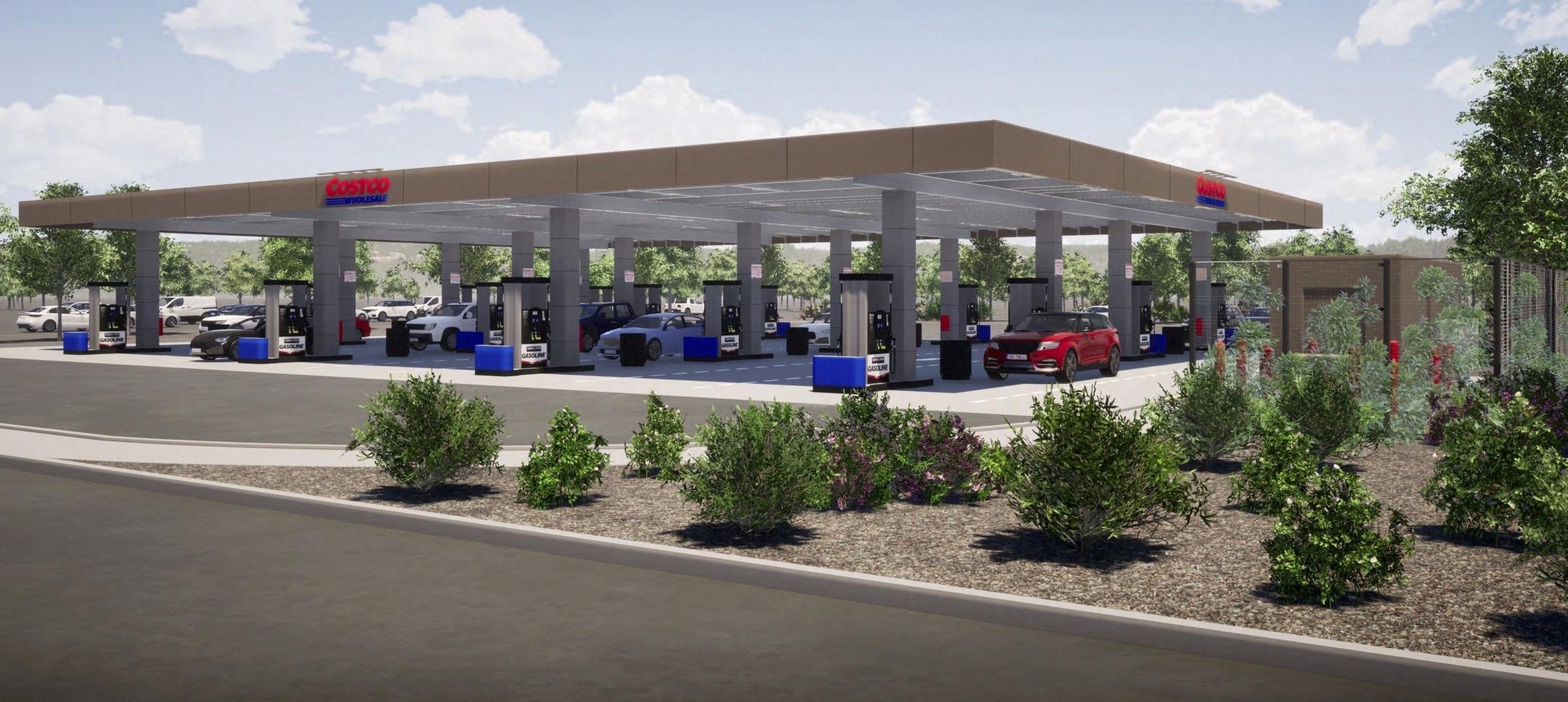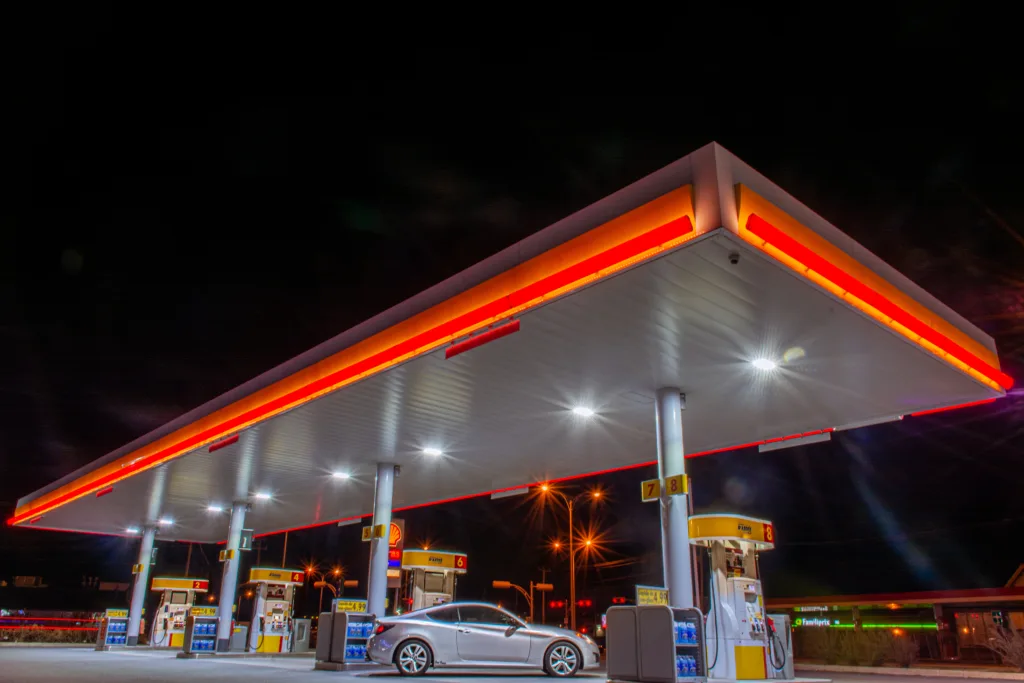Gas stations are an essential part of the American economy. They provide fuel for cars, trucks, and other vehicles that are used to transport goods and people across the country. As a result, gas stations are a lucrative business opportunity for entrepreneurs who are looking to invest in a stable and profitable industry.
However, starting a gas station is not cheap. Depending on the state you’re in, your chosen location, and whether you buy a franchise or open an independent location, you can expect to spend anywhere between $250,000 to $2,000,000 to get your business off the ground. This includes a variety of expenses such as building maintenance and repair, fuel costs, liability insurance, franchise fees (if applicable), lease or mortgage expenses, business loan repayments, utilities, and signage.
One of the biggest expenses for a gas station is the cost of fuel pumps. The average cost of a gas station fuel pump ranges from $16,000 to $21,000. The exact cost depends on the features of the pump, such as digital screens, the ability to dispense multiple fuels, and secure credit card technology.
In addition to the cost of the pumps themselves, there is also the cost of installation. The average cost to install a gas pump ranges from $2,500 to $3,000 per dispenser. This includes the cost of excavation, concrete work, electrical work, and plumbing.
Other expenses asociated with running a gas station include the cost of fuel, which can vary depending on the price of crude oil and other factors. Liability insurance is also a major expense, as gas stations are at risk for accidents and spills that can damage the environment and harm customers.
Despite the high cost of starting and running a gas station, it can be a profitable investment for those who are willing to put in the time and effort to make it successful. With a constant demand for fuel and a steady stream of customers, gas stations are a reliable source of income for entrepreneurs who are looking to make a long-term investment in their future.
The cost of starting and running a gas station can vary widely depending on a variety of factors. From building maintenance and repair to the cost of fuel pumps and installation, there are many expenses that must be taken into account. However, for those who are willing to invest in this lucrative industry, the potential rewards can be substantial.
Is Investing in a Gas Station a Profitable Venture?
Owning a gas station can be a lucrative business venture that has the potential to generate a significant amount of revenue. The demand for fuel is a constant in the United States, which means that gas stations are always in demand. However, there are certain factors that one should consider before investing in a gas station franchise.
One of the primary factors to consider when investing in a gas station franchise is the location. The location of the gas station can significantly impact its profitability. Ideally, the gas station should be situated in a high traffic area with easy access to major roads and highways. A gas station located in a remote area may not generate as much revenue compared to one located on a busy street.
Another factor to consider is the competition. It is essential to research the local market and determine the number of gas stations in the area. If there are aleady several gas stations in the vicinity, it may be challenging to attract customers and generate revenue.
Apart from the location and competition, other factors that can impact the profitability of a gas station include the price of fuel, maintenance costs, and overhead expenses. The price of fuel is determined by various factors such as crude oil prices, taxes, and transportation costs. It is essential to keep an eye on these factors and adjust the price of fuel accordingly to remain competitive.
In terms of maintenance costs, gas station equipment such as pumps, tanks, and other machinery requires regular maintenance and repairs. It is important to factor in these costs when projecting the profitability of the gas station.
Overhead expenses such as rent, utilities, and payroll can also impact the profitability of a gas station. It is essential to keep these expenses low to maximize profits.
Owning a gas station can be a profitable business venture if the right factors are considered. Location, competition, fuel prices, maintenance costs, and overhead expenses are all factors that can impact the profitability of a gas station. By carefully analyzing these factors and developing a solid business plan, owning a gas station can be a worthwhile investment.

Source: danvillesanramon.com
The Cost of Opening a Gas Station in the USA
Opening a gas station in the USA can be a costly endeavor. The cost of opening a gas station can range from $250,000 to $2,000,000, depending on the location, state, and whether you opt for an independent or franchise business. The exact costs can vary significantly depending on a variety of factors, such as land and building costs, equipment costs, permit fees, and other costs associated with starting a business.
For instance, if you are planning to open a gas station in a metropolitan area, you can expect to pay more for real estate, permits, and other costs than if you were to open a gas station in a rural area. Similarly, if you choose to buy a franchise, you will have to pay franchise fees, which can add up to a considerable amount depending on the franchise.
When opening a gas station, you should also cnsider the cost of purchasing equipment such as fuel dispensers, underground storage tanks, and other equipment necessary for the operation of the business. These costs can add up to a significant amount and should be factored into your budget.
Opening a gas station in the USA can be an expensive venture. The cost of opening a gas station can range from $250,000 to $2,000,000, depending on various factors such as location, state, and whether you choose to buy a franchise or open an independent location. It is crucial to do thorough research and develop a detailed business plan to ensure that you have a realistic understanding of the costs involved in opening a gas station.
Expenses of a Gas Station
Running a gas station involves various expenses that should be considered before starting or managing one. These expenses typically include building maintenance and repair costs, fuel expenses, liability insurance, franchise fees (if applicable), lease or mortgage expenses, business loan repayments, utilities, and signage expenses.
Building maintenance and repair costs are necessary to ensure that the gas station is safe and functional for customers. This includes fixing any plumbing, electrical, or structural issues, as well as maintaining the parking lot, landscaping, and exterior appearance of the gas station.
Fuel expenses are a significant cost for gas stations, as they need to purchase fuel from suppliers and store it onsite. Additionally, gas stations may need to invest in equipment to dispense fuel, such as pumps, tanks, and hoses.
Liability insurance is crucial for gas stations to protect against any accidents or injuries that may occur on the premises. This type of insurance can cover a range of situations, from slips and falls to explosions or fires.
Franchise fees are only applicable if the gas station is part of a larger franchise network. These fees are typically paid to the parent company in exchange for using their brand, marketing, and operational systems.
Lease or mortgage expenses are another significant cost for gas stations, as they need to rent or own the land and building where the station is located. This can be a significant expense, espeially in high-traffic areas where real estate prices are high.
Business loan repayments may be necessary if the gas station owner needs to borrow money to start or expand their business. These loans may have interest rates and repayment terms that can affect the overall profitability of the gas station.
Utilities, such as electricity, gas, water, and internet, are necessary to operate the gas station and provide services to customers. These expenses can vary depending on the size of the gas station and the types of services offered.
Signage expenses are necessary to attract customers and advertise the gas station’s services. This can include signage on the building, fuel pumps, and nearby roads or highways.
Running a gas station involves various expenses that should be considered before starting or managing one. By carefully managing these expenses, gas station owners can maximize their profits and provide high-quality services to customers.
Cost of a Gas Station Pump
When it coms to gas station pumps, the cost can vary depending on a few factors. On average, the cost of a gas station fuel pump ranges from $16,000 to $21,000. However, this range can be affected by the available options that come with the pump, such as digital screens, multiple fuel dispensing capabilities, and secure credit card technology.
In addition to the cost of the pump itself, there is also the cost of installation to consider. The average cost to install a gas pump is around $2,500 to $3,000 per dispenser. This includes the cost of wiring, piping, and any necessary permits.
It’s important to note that these costs are just an estimate and can vary depending on several factors such as location, size of the gas station, and the number of pumps required.
Here is a breakdown of the costs associated with a gas station pump:
– The cost of the pump itself: $16,000 – $21,000
– The cost of installation: $2,500 – $3,000 per dispenser
The cost of a gas station pump can be a significant investment for gas station owners. However, it is a necessary one in order to provide customers with a convenient and reliable fueling experience.

Conclusion
Owning a gas station can be a lucrative business opportunity for those willing to invest the time and money required to get it started. With an industry worth $250 billion annually, there is a constant demand for fuel in America that is not gong anywhere. However, it is important to keep in mind the significant costs involved in starting and maintaining a gas station, including building maintenance and repair, fuel costs, liability insurance, franchise fees (if applicable), lease or mortgage expenses, business loan repayments, utilities, and signage. Additionally, the cost of installing gas pumps can range from $2,500 to $3,000 per dispenser, with an average cost of $16 to $21K per fuel pump. Despite the expenses, owning a gas station can be a rewarding business venture for those who are willing to put in the effort and resources necessary to make it successful.
